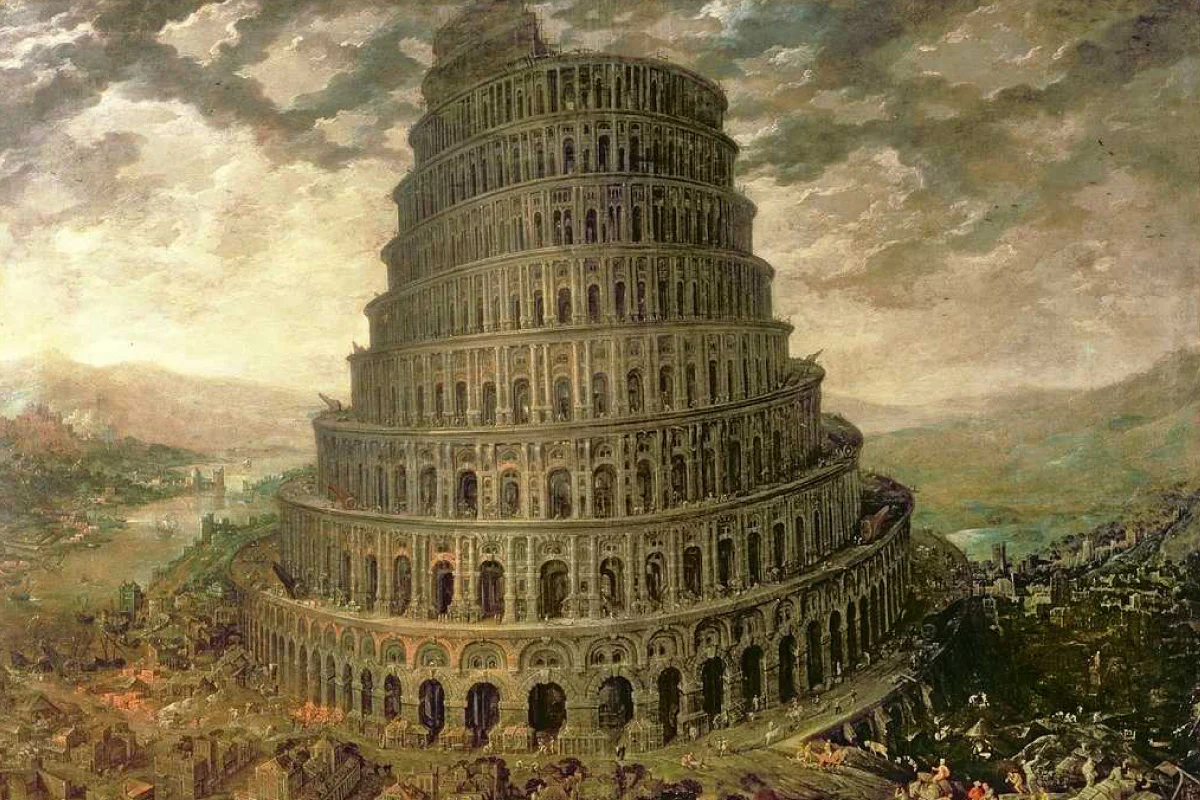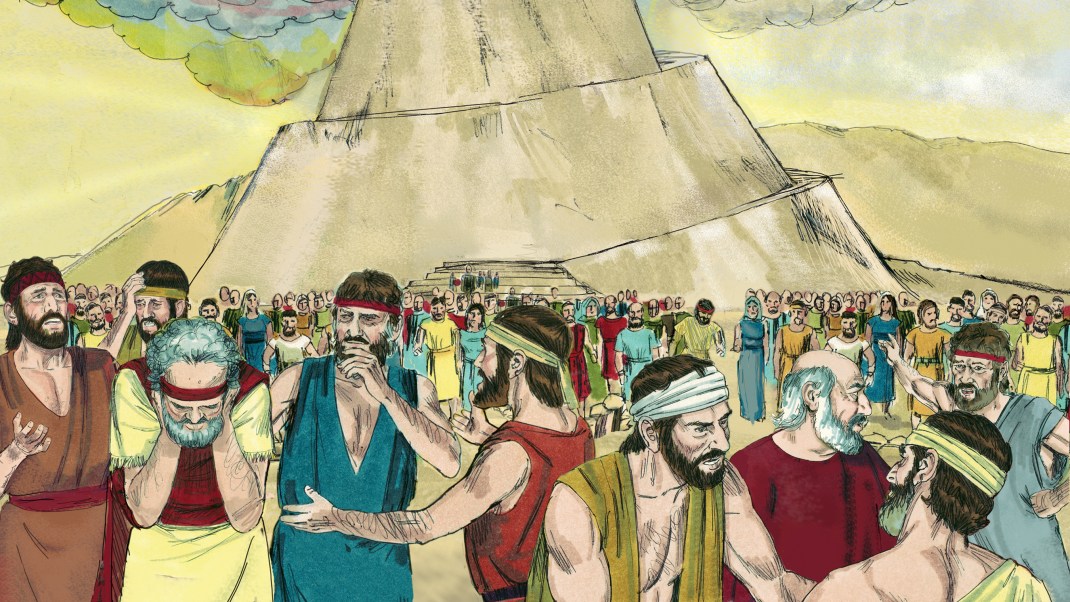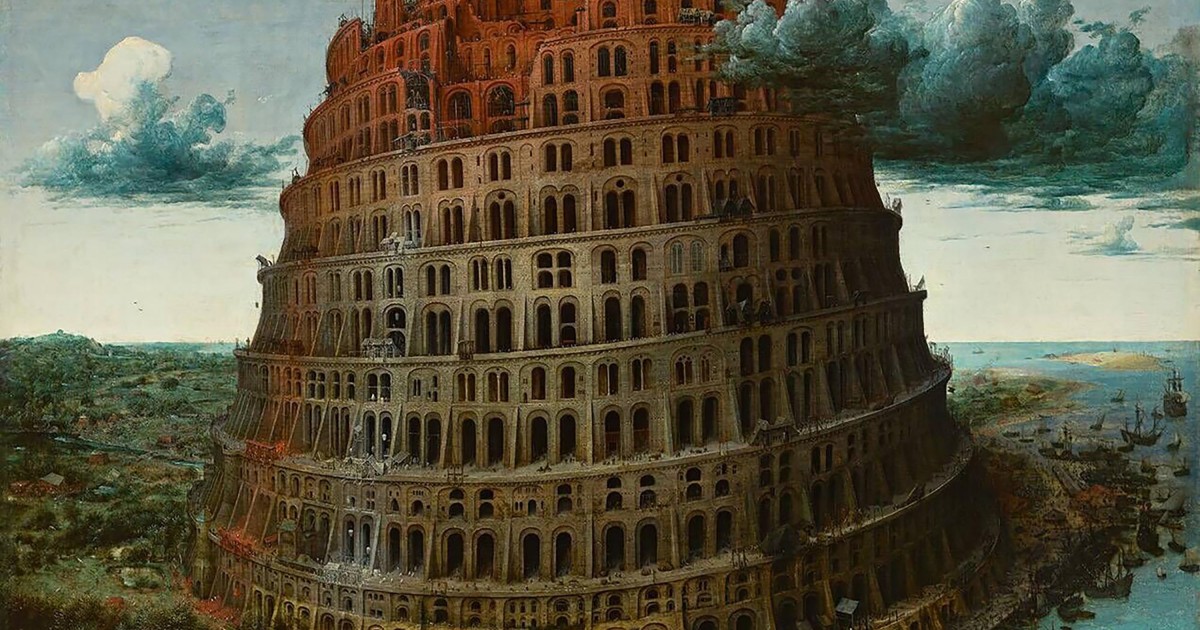[EDIT: Argh! Yet another posting schedule wardrobe malfunction. Apologies if you saw the half-baked version of this]
A month ago someone I know emailed me to ask my interpretation of the Tower of Babel story for a freelance job that required some interpretation of said story. As I wrote the response I thought it would make for some interesting blog fodder so here it is in somewhat expanded form.

To start with, here is how I summarised it in my Genesis post of the Super-Abridged Bible: “All the world still speaks the same language. They work as a team, invent bricks and build a city with a tower reaching high into the sky. YHWH is worried that if humanity remains united they can achieve whatever they want including toppling him. To protect himself, he muddles their languages and destroys the first world-scale civilisation. Tribalism begins.”
So, there are several dimensions to interpreting the story.
Historically and politically, there are of course the details of what caused someone to write this story, what caused it to be canonised in the Torah and so on. On this level I don’t think there’s any room for opinion or interpretation since we must defer to the academic scholarship itself. I believe it’s still the consensus that the story was written when the Jews were in the Babylonian captivity and is hence a mockery of their Babylonian overlords. Possibly a bit of literary catharsis at seeing them get their comeuppance, perhaps a satire on how pompous they were perceived to be, or how arrogant in their alleged pretence to civilisation. Or something.

If we want interpretation though, we probably have to take the story at face value — how would I react if the story were true? Here, I think the most natural reaction would be revulsion at this YHWH character, at his barbarity and cruelty. But then there might also be amusement. YHWH is very petty (often to the point of comedy) and the Babel story is a perfect illustration.
But the main interpretation I had is one of hope. For you see, the story has a very humanist (or really even transhumanist) reading to it. The story basically says that humans can accomplish anything through teamwork and motivation. Even challenging the power of the gods. Note that the most interesting part of the story is that YHWH does NOT seem to punish the people because they have “dared” to overstep their bounds. Firstly, those bounds were never set. Secondly, and most importantly, YHWH seems to actually be scared for his supremacy. “These pesky humans may win after all,” he thinks before laying waste to them. And of course it is by destroying their organisation that he does it which further highlights the importance of culture and ideas.
Also the story has a strong anti-religious sense, at least from a modern perspective. It is YHWH who puts the humans in a world of incredible suffering and it is they who seek a way out not at his orders but in spite of him. Every human achievement and bit of social progress that religion has railed against is therefore another Tower of Babel — and thankfully we have quite a few under our belt. It is for this reason that the story also reminds me of this poem, the end of which I quote.
Jesus gives the children acne.
AIDS and leprosy galore.
Germs and worms of every kind.
Things to make the children blind.
But he cannot give them smallpox anymore.Scientists and unbelievers
wiped the pox right off the earth.
Jesus still gives gifts to kids,
broken nose and burnt eyelids.
But he cannot give them smallpox anymore. [Source]
And of course regardless of any gods the ultimate message is still the same. We were put on a world of almost unspeakable cruelty and malice. For each of these horrors we must rebel and overcome nature until we, in our hubris, do not have hunger/disease/genocide/war anymore.





0 Comments